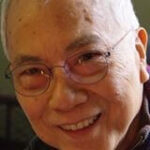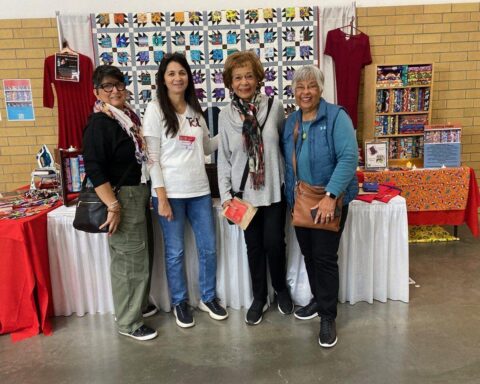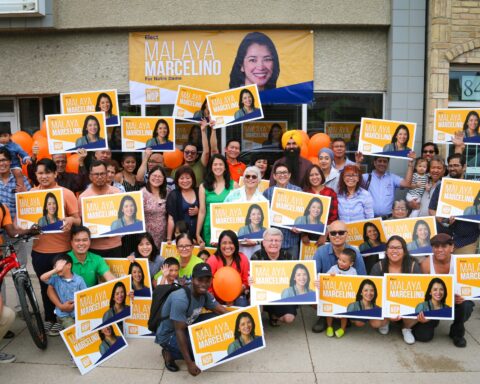The British Columbia Human Rights Tribunal recently granted one of the largest awards given to a Filipino caregiver, a win that Filipino-American expert on labour and migration, Dr. Anna Guevarra, calls ‘monumental’.
The caregiver, known only by the initials PN, was awarded $5,866.89 for lost wages and $50,000 as damages for injury to dignity, feelings and self-respect.
She worked for a year in Hong Kong before being brought to Canada in July 2013 by her employers (also identified by their initials, FR and MR). According to the decision handed down on April 1, PN was treated like a “virtual slave.”
“I’m happy to see that the case was recognized as a human rights issue,” adds Dr. Guevarra by phone from Chicago, where she is the director of the Asian American Program at the University of Illinois.
“Hopefully this would encourage other workers to come forward [about] their isolation,” says Guevarra, before adding that the decision is an important one and a milestone for the Filipino community’s struggle for human rights.
“She was isolated, underfed and treated like she was sub-human; all because she was a young Filipino mother who needed the job to take care of her own children. I would like to think that this behaviour does not occur in B.C.” – Catherine McCreary
Born in the Philippines, but raised and educated in the U.S., Dr. Guevarra has been published by many journals. She is an expert in immigrant labour and global care workers — she specializes in domestic workers.
Her written work on the stereotyping and prejudice suffered by many Filipino domestic workers played a crucial role in the tribunal decision taken by member Catherine McCreary.
A Harrowing Tale
The tribunal decision chronicles sexual abuse, assault and harassment from the hands of the male employer, as well as verbal and physical abuse from the female employer and their children in Hong Kong and in Canada.
“While working for the respondents, PN was exploited,” writes McCreary in the tribunal decision. “She had to perform sexual acts at the whim and insistence of her employer, she was humiliated and degraded by her other employer, and she was even made fun of by the children who were in her care. She was isolated, underfed and treated like she was sub-human; all because she was a young Filipino mother who needed the job to take care of her own children. I would like to think that this behaviour does not occur in BC.”
The family lived in a hotel in Richmond while buying a house. PN had to sleep on a couch in the living room. Less than six weeks later, she fled the hotel alleging that the sexual and verbal abuse she suffered in Hong Kong continued in Canada. She fled with only the clothes she was wearing and no passport, money or any other belongings.
She sought directions to the Philippine Consulate in Vancouver, but when she got there the office was closed because it was Sunday. A Filipino store worker allowed her to use the phone with which she contacted the police. She was later referred to the women’s shelter, Deborah’s Gate, by sympathetic church people she met at the mall.
“It is an unusual case in that the complainant took this all the way to a hearing – it is extraordinary for her to do that.” – Lawyer Devyn Cousineau
According to the court, the police initially declined to help saying that, “the jurisdiction for solving her problem was in Hong Kong, not in Canada.”
It was only after FR reported her missing to police that they came to interview her.
According to McCreary’s decision, “when she first came to Deborah’s Gate, the staff found that she was malnourished and sleep deprived. She would not make eye contact with staff or other residents. She often cried in her room. She would ask for permission to do the most mundane things. It was clear to the staff person who testified that PN had been traumatized.”
Damaging Stereotypes
Quoting Guevarra, the tribunal said, “Filipino domestic workers are often marketed as obedient, hardworking, God-fearing, loyal, honest, cooperative, and compliant. At the same time, she says that they are also promoted as highly educated, skilled, and exhibiting a high tolerance for stressful conditions.”
Filipinos made up 50 per cent of Hong Kong’s foreign domestic population, which totalled 320,000, in 2013.
Lawyer Devyn Cousineau of the Community Legal Assistance Society represented PN. The respondents retained lawyer Winnie Leung and another Hong Kong lawyer when the case started, but HR eventually represented himself via videoconference from Hong Kong during the hearing, Cousineau said in a telephone interview.
Final Outcomes
PN remains in Canada, although the visitor’s visa under which she was brought into the country was good for only three months.
The tribunal’s decision came barely a month after Franco Orr, who was convicted in 2013 of human trafficking in Vancouver in another case that involved another Filipino domestic helper, won a retrial of his case.
Cousineau said work is under way to forward the tribunal decision to the B.C. Supreme Court and register it as an order of the court against the property. The family against whom PN brought up the case is believed to be in Hong Kong, but owns property in B.C.
“It is an unusual case in that the complainant took this all the way to a hearing – it is extraordinary for her to do that,” says Cousineau, who praised PN for her courage.
When asked why the case did not end up in court, Cousineau said police did not have enough evidence, but believes they are continuing their investigation.
The tribunal’s decision came barely a month after Franco Orr, who was convicted in 2013 of human trafficking in Vancouver in another case that involved another Filipino domestic helper, won a retrial of his case. He was charged along with his wife, Oi Long Nicole Huen, who was acquitted after the couple’s jury trial.
While there was no sexual assault alleged in this case, it remains similar to the current PN case in all other respects. Orr was convicted of human trafficking and sentenced to 18 months in jail. It is the first conviction for human trafficking in Canada involving a caregiver.
Ted Alcuitas is the founder of Canada's first Filipino newspaper, est. 1976. He is also former Senior Editor of Philippine Asian News Today and current publisher and editor of Philippine Canadian News.





